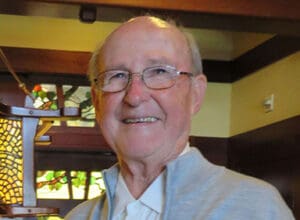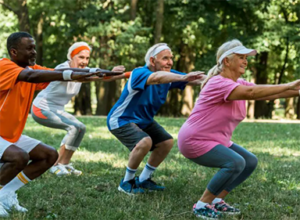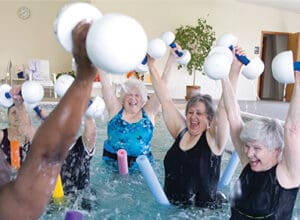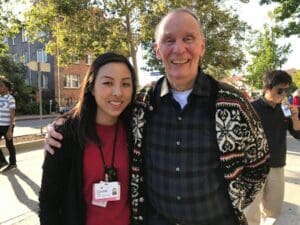
Understanding Anxiety in Elderly Individuals
As we age, it’s not uncommon for individuals to experience increased levels of anxiety. Anxiety in older adults can manifest in various ways, from persistent worries and fears to physical symptoms like restlessness and muscle tension. Recognizing the particular challenges of aging allows us to provide seniors with the targeted mental health care they need and deserve.
Aging brings significant life changes, such as retirement, losing loved ones and declining physical health. These transitions can be overwhelming and contribute to feelings of uncertainty, isolation and a lack of control. Furthermore, the aging process involves physiological changes, such as alterations in brain chemistry and hormone levels, which can lead to the development of anxiety disorders in older adults.
Common Signs and Symptoms of Anxiety in Seniors
Identifying the symptoms and signs of anxiety in elderly individuals is crucial for providing timely and practical support.
- Persistent worrying and nervousness
- Difficulty sleeping or insomnia
- Restlessness and irritability
- Muscle tension and physical aches
- Difficulty concentrating or making decisions
- Avoidance of social situations or activities
- Frequent visits to the doctor with unexplained physical symptoms
Factors Contributing to Anxiety in the Elderly
- Health Concerns: Age-related health issues, including heart disease, Parkinson’s and cancer, can instill fear and doubt about the future as these conditions progress.
- Sensory Changes: Deterioration in vision, hearing, or other senses can lead to increased vulnerability and a reduced sense of control.
- Social Isolation: The loss of social connections, either through the death of a spouse or friends or due to mobility limitations, can exacerbate feelings of loneliness and anxiety.
- Cognitive Changes: Mild cognitive impairment or the onset of dementia can cause confusion, disorientation and a heightened sense of anxiety.
- Medication Side Effects: It’s important to note that certain drugs, including some antidepressants and blood pressure medications, can potentially trigger anxiety as a side effect.
- Traumatic Life Events: Experiences like the loss of a loved one, a move to a senior living community, or a significant health crisis can trigger or worsen anxiety in older adults.
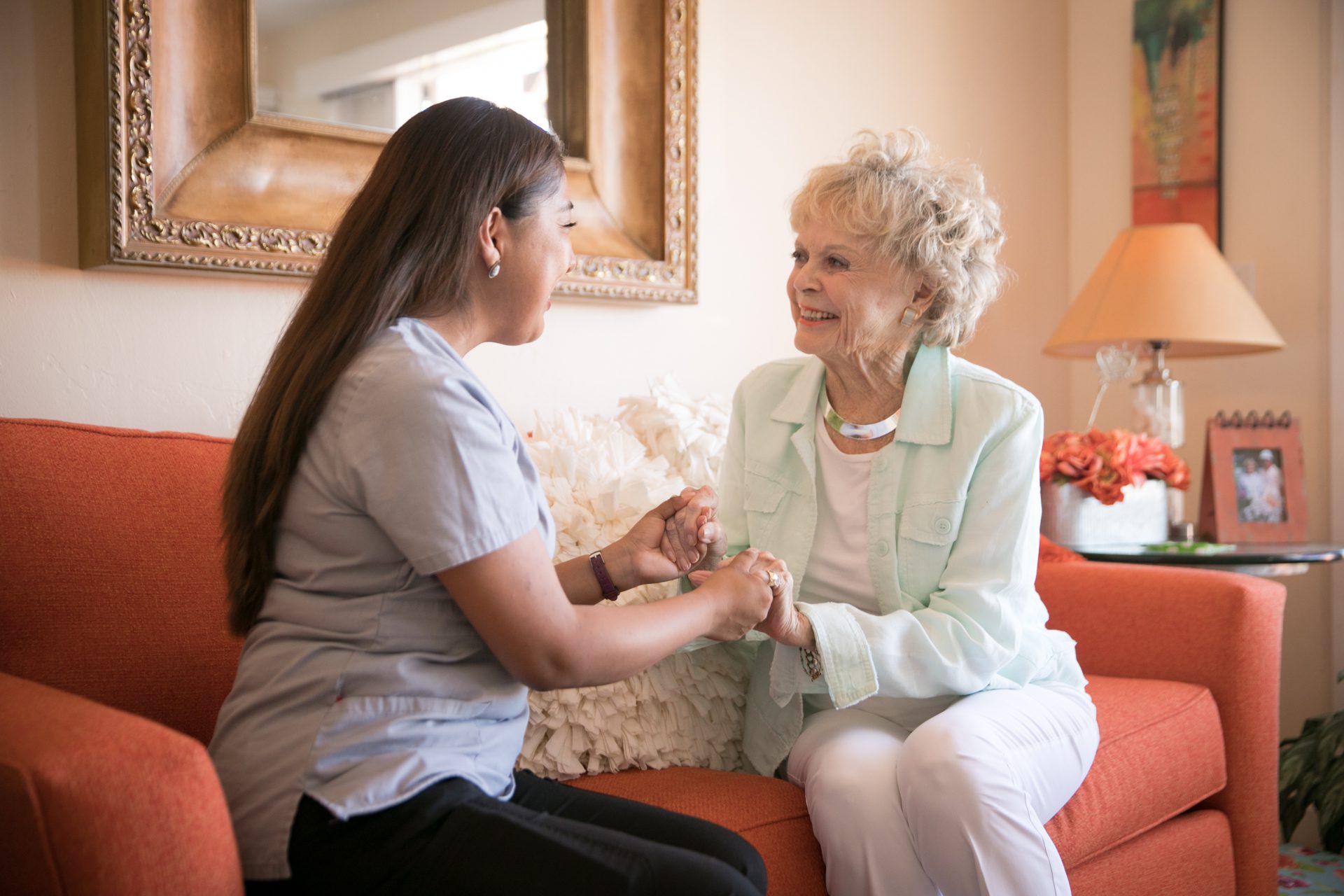
Strategies for Identifying Anxiety in Elderly Individuals
Effectively identifying anxiety in older adults requires a multifaceted approach that combines observation, assessment and open communication. Some key strategies include:
- Regular Screening: Implementing routine anxiety screenings, such as the Geriatric Anxiety Scale (GAS) or the Generalized Anxiety Disorder-7 (GAD-7), can help identify early signs of anxiety in senior residents.
- Caregiver Observation: Encouraging caregivers, both professional and family members, to closely observe residents for changes in behavior, mood and physical symptoms that may indicate anxiety.
- Resident Interviews: Conduct regular one-on-one interviews with residents to discuss their emotional well-being, concerns and any changes they may be experiencing.
- Collaboration with Healthcare Providers: Working closely with primary care physicians, geriatric psychiatrists and other healthcare professionals to comprehensively assess each resident’s mental health needs.
Techniques for Addressing Anxiety in Seniors
Once anxiety has been identified in an elderly individual, it’s essential to implement a comprehensive plan to address their specific needs.
- Cognitive-behavioral therapy (CBT) can help seniors identify and challenge negative thought patterns, develop coping strategies and improve their overall emotional well-being.
- Relaxation Techniques: Incorporating wellness programs for seniors, such as deep breathing, meditation and gentle exercise can help them manage stress and reduce physical symptoms of anxiety.
- Medication Management: In some cases, a healthcare provider may recommend the use of anti-anxiety medications or adjustments to existing prescriptions to help manage anxiety symptoms.
- Environmental Modifications: Adjusting the senior living environment, such as reducing noise levels, improving lighting and creating calming sensory experiences, can help mitigate anxiety triggers.
- Caregiver Education and Support: Providing training and resources to caregivers, both professional and family members, can help them better understand and support seniors struggling with anxiety.
Creating a Supportive Environment for Seniors with Anxiety
- Social Engagement: Encouraging regular social activities, group outings to La Jolla and opportunities for meaningful connections can help alleviate feelings of isolation and loneliness.
- Sensory-Friendly Spaces: Designing calm, well-lit and low-noise areas within the senior living community can provide a soothing respite for residents experiencing anxiety.
- Personalized Care: Tailoring support and interventions to each resident’s unique needs and preferences can help foster a sense of control and empowerment.
- Caregiver Training: Ensuring that all staff members, including nurses, aides and activity coordinators, are trained in recognizing and responding to anxiety in older adults.
- Family Involvement: Active family participation enhances a resident’s well-being. We cultivate a greater sense of community by including families in the care process.
The Importance of Addressing Anxiety in Senior Living Communities
Addressing anxiety in senior living in La Jolla is crucial for promoting overall well-being and quality of life.
- Decreased social engagement and increased isolation
- Reduced physical activity and mobility
- Poor sleep quality and disrupted circadian rhythms
- Increased risk of falls and other accidents
- Worsening of underlying health conditions
- Reduced cognitive function and decision-making capacity
Conquering Anxiety in Senior Communities
Addressing anxiety in older adults is a multifaceted challenge that requires a comprehensive, collaborative approach. By comprehending the specific factors that influence anxiety among seniors in a community setting, employing proactive approaches to detect and address the issue and cultivating a supportive atmosphere, you can empower residents to keep their mental health and enjoy a fulfilling life.
If you or a loved one is struggling with anxiety in a senior living community, know that you’re not alone. Casa de Mañana in La Jolla, California can be a supportive community for residents that may be struggling with anxiety. Our experienced team is dedicated to creating a peaceful and nurturing environment. Call us today at (800) 959-7010 to learn more.



